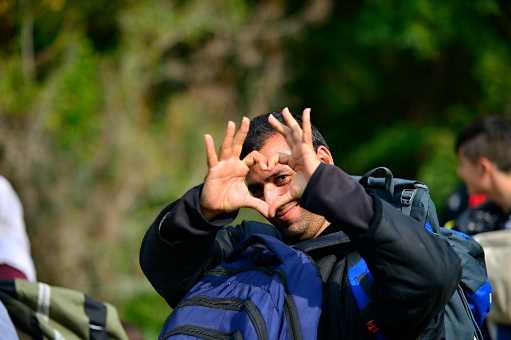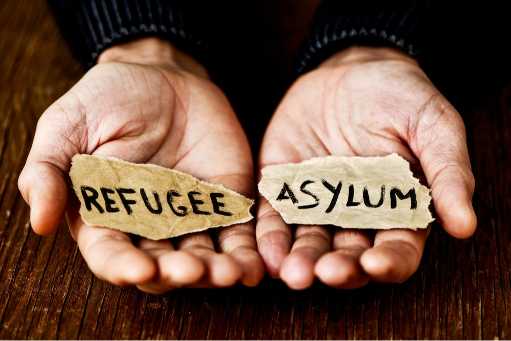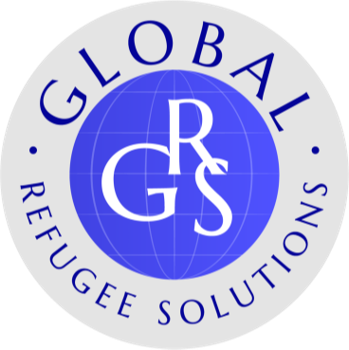PETITION FOR ADVOCACY
Advocacy for Asylum Seekers, Immigrants & Refugees: A Call for Justice and Compassion
Sign the Petition
American values toward refugees, asylees, and migrants are shaped by a mix of humanitarian principles, economic interests, national security concerns, and political debates. These values are often framed around:
- Humanitarianism & Compassion – The U.S. has a long history of providing refuge to those fleeing persecution, war, and violence. Laws like the Refugee Act of 1980 codified protections for those seeking asylum.
- Opportunity & the American Dream – Many Americans view migration as a way for individuals to build a better life through hard work and determination, contributing to the country’s diversity and economic strength.
- Rule of Law & Security – While there is support for legal pathways for refugees and immigrants, there are also concerns about border security, legal processes, and national sovereignty, leading to debates on how migration should be regulated.
- Economic Contributions – Migrants, including refugees, contribute to the economy as workers, consumers, and entrepreneurs, filling labor shortages and driving innovation.
- Political and Cultural Debates – Attitudes toward migration often vary based on political beliefs, economic conditions, and historical events, leading to fluctuating policies and public opinions.
Every day, thousands of asylum seekers, refugees, and immigrants face unjust legal barriers, extreme wait times, and life in limbo. The U.S. asylum system is failing those who need protection most.
The Problem: A Broken Asylum System
- 1 to 6+ year wait times for asylum decisions
- Unjust denials leaving families in legal limbo
- Financial barriers preventing legal representation
- Contributing members of society left without legal protection
The Right to Seek Asylum: A Promise We Must Keep
The United States has long stood for justice, freedom, and human dignity. But today, the asylum system fails those who need protection most.
International treaties and U.S. obligations demand better:
- Geneva Convention (1951) – Protects refugees from deportation to danger (non-refoulement)
- UN Refugee Protocol (1967) – Ensures global protection without geographic restrictions
- Universal Declaration of Human Rights (1948) – Affirms the right to seek asylum (Article 14)
- Convention Against Torture (1984) – Prohibits return to countries where torture is a threat
- Global Compact on Refugees (2018) – Calls for global solidarity and shared responsibility
The Petition: A Call to Action
We are calling on the U.S. Government, Congress, to fix the asylum system, provide legal protection, and grant fairness to those who have earned their place in America.
Signatures collected: 99

Our Request: Improve Fairness and Efficiency in Asylum and Immigration Processing
-
Asylum Case Processing
Many individuals face prolonged wait times of one to six years for an asylum decision, contributing to uncertainty and hardship. -
Humanitarian Relief After Asylum Denial
Some individuals with denied asylum cases remain in the U.S. under withholding of removal or seek protection based on humanitarian grounds. -
Detained Individuals and Family Reunification Support
GRS advocates for individuals with active asylum cases in detention to be allowed to reside with family members in the U.S. during their legal proceedings. GRS offers support services to promote stability and adherence to immigration requirements. -
Family Reunification Delays
Applicants seeking family reunification often experience significant delays. GRS supports efforts to improve the efficiency and transparency of these processes. -
Timely Work Authorization for Asylum Applicants
GRS encourages timely access to work authorization—ideally within five months of applying for asylum—to promote self-sufficiency and dignity while cases are pending.
Why This Matters
- Immigration should be fair – Endless fear and delays violate human dignity
- Lives are at risk – Many can’t access work, housing, or healthcare
- Change is possible – Your voice can move policy and shift systems
Our Goal: 1,000,000+ Signatures
We aim to petition the White House
How You Can Help
- Acknowledge & Sign – The causes that need immediate attention
- Sign – Demand policy change and justice
- Share – Raise awareness in your community
Stories from Those Impacted by the Broken Asylum System
Tsion Gebru
A Story of Survival and Hope: Tsion’s Voice
My name is Tsion Gebru. I was born in Addis Ababa, Ethiopia, in 1965. For most of my life, I was an athlete, a mother, a civil servant, and later, a survivor of political persecution and unimaginable trauma.
I proudly represented my country as a volleyball player for the Ethiopian National Women’s Team. But when my husband, a former lieutenant under the previous government was arrested and disappeared after the new regime came to power, my life began to unravel. I was left alone to raise our son, with no answers and no support.
In 1992, they came for me too. I was jailed, interrogated, and harassed for no crime other than being the wife of a former official. Later, I joined a peaceful opposition party, hoping to bring change. I believed in justice and human rights. But the price for standing up was steep. I was arrested again after the 2005 elections, imprisoned for over a year, tortured, and sexually assaulted. I still carry the scars on my body and in my soul.
When I was finally released, I was warned: if I ever told anyone what happened to me, I would be killed. I lived in fear every day. I moved constantly, trying to protect my son, but I knew I couldn’t hide forever. So, I fled my homeland.
Today, I live in the United States, rebuilding my life and healing from the horrors I endured. I am asking you, those with voices and choices to understand what it would mean for me and others like me to be sent back. It would not just be a return. It would be a death sentence.
I love my country, but I cannot go back. I am Oromo and Amhara—two ethnic groups facing increasing repression in Ethiopia. I am a survivor, but my safety still hangs in the balance.
WHAT HAS HAPPENED TO ME BECAUSE I WAS DENIED ASYLUM IN THE UNITED STATES
I have now been in the United States for 13 years. Despite escaping horrific abuse in Ethiopia and seeking safety, I was denied asylum. This denial has deeply impacted my life and left emotional wounds that still bleed.
I left behind my only child in Ethiopia when he was just 14 years old. Today, he is nearly 28. I have not seen him since I left. I was not there to comfort him, support him, or witness his growth into a man. He cried for years, feeling abandoned and unsupported. I live with the unbearable pain of being separated from my son, missing every milestone of his life due to a system that failed to protect me and help reunite our family.
I also lost my beloved brother, who was one of Ethiopia’s legendary national soccer team coaches. He helped save me and my son when our world fell apart, but when he passed away, I could not return to bury him, grieve properly, or say goodbye. I’ve lost other family members, too, but have had to mourn from afar, isolated and alone.
Being denied asylum didn’t just delay my healing, it stopped me from reuniting with the only family I have left and denied me the closure and dignity every human being deserves. I have lived in fear, silence, and grief, and I continue to suffer from the consequences of this unjust system.
My story is not unique - many asylum seekers like me are left in limbo, suffering silently. Please, let my story remind you: behind every asylum case is a human being. Someone who has lost everything but their hope.I am sharing this now in hopes that my voice helps bring change.
Let us stay. Let us heal. Let us live.
